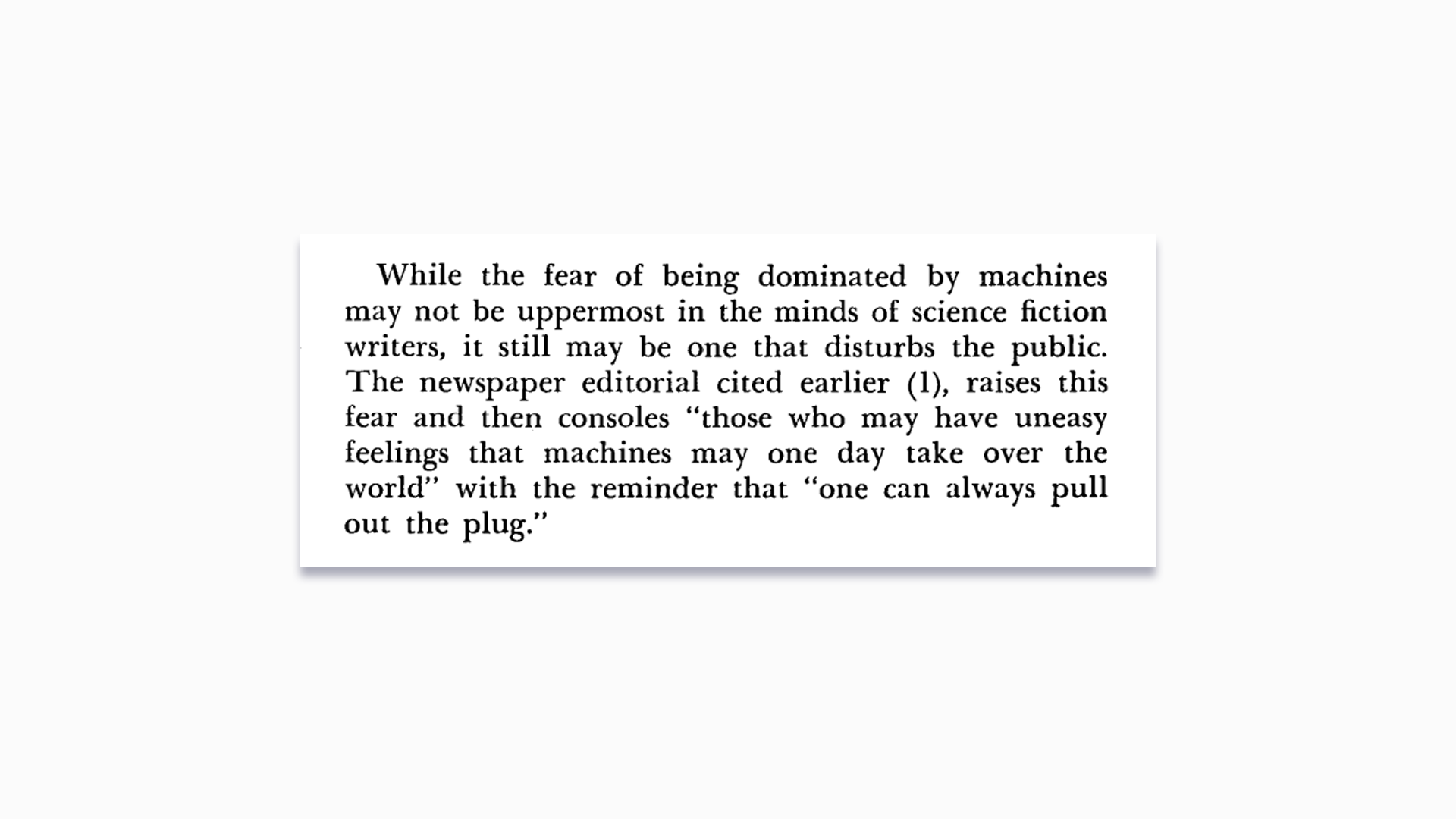Lately, I’ve been doing a lot of research into the types of things people have historically hoped computers would (or could) do for them in the future, and why.
Because we’ve hoped computers would solve our problems for so long, there’s a HUGE body of literature to review.
One particularly interesting piece I came across this week is a piece called “Fictional Computers and Their Themes,” published in a 1962 issue of Computers and Automation.
The piece offers a fun, comprehensive review of dozens of instances of fictional computers from the past (especially impressive given the year it was published), dividing the themes of the stories in which these computers exist into categories that—I think—still ring true in today’s preoccupations:
Domination and/or destruction of man by machine, creativity, social responsibility, literal fulfillment, elections, government, computers as guides, philosophers, and friends, chess playing, and several other applications or questions that—by 1962—had already been explored in short fiction.

The piece itself (and the many stories it references, though sometimes difficult to find online) is a fascinating read and a good reminder that less about the current technological moment is as new as we sometimes think.
Read it here (PDF page 59–66)





